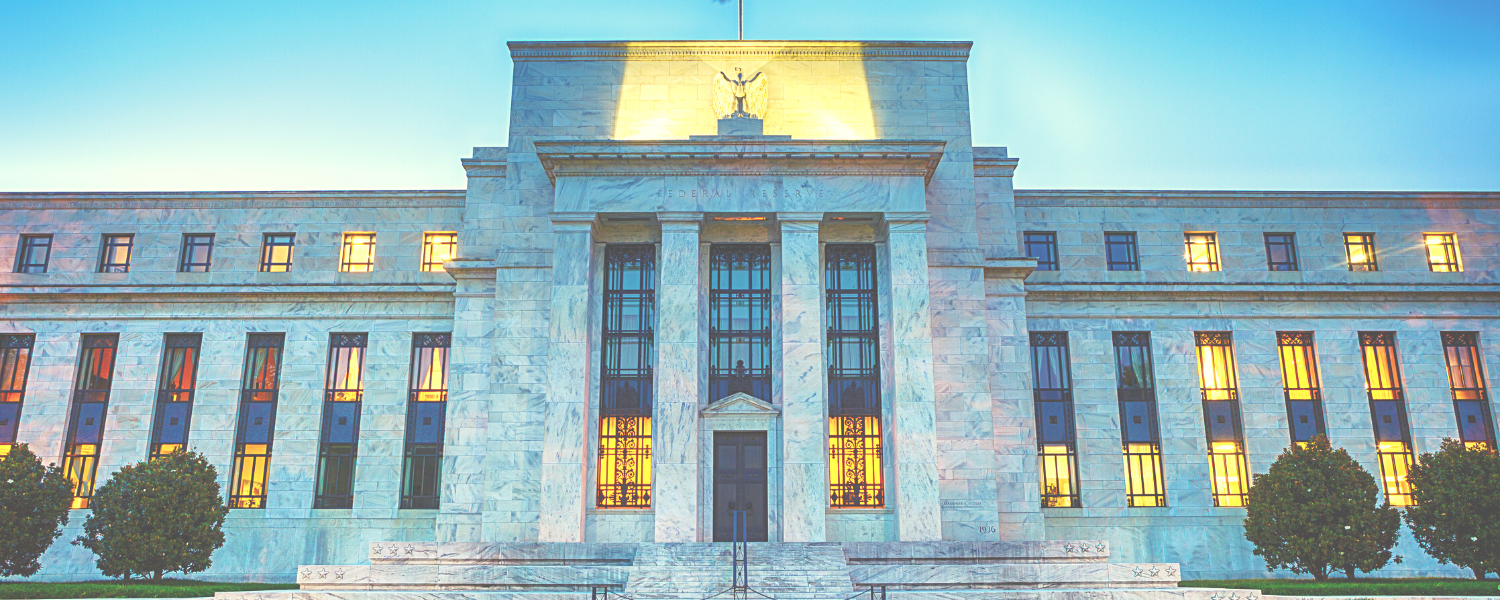“Ignoring the climate crisis and its risks would mean deviating from the Fed’s congressionally given mandates,” says a new letter.
The Fed has been told it cannot remain neutral on the climate crisis, in an open letter sent today by research and campaign group Positive Money US to the Board of Governors at the Federal Reserve. The letter responds to Chair Jerome Powell’s remarks made earlier this month at a symposium in Sweden, where he stated that the Fed is not and “will not be a climate policymaker”.
Positive Money US is calling on the Fed to take swifter action to address the risks the financial system and the wider economy face from climate change. “Adopting monetary and supervisory measures aligned with climate targets is not the same thing as making climate policy”, the letter explains, arguing instead that “ignoring the climate crisis and its risks would mean deviating from the Fed’s congressionally given mandates.”
The Fed is currently accepting public comments on draft supervisory guidance to help financial institutions manage climate-related financial risks, and has released plans for a pilot climate scenario analysis exercise, an assessment tool to gauge the level of risk six major US banks face from climate change.
Positive Money US welcomes these developments but asks that the Fed quickly finalize and strengthen its long overdue guidance, and work to address the many gaps in its scenario analysis. The letter further urges the Fed to adopt a precautionary approach to climate as a systemic risk, and calls for more concrete policies to keep the public’s money safer, such as implementing climate calibrated capital requirements, which would require banks to hold more of their own cash against high-risk fossil fuel lending.
Recent research, commissioned for the One for One campaign, reveals that the continued financing of fossil fuels, especially as society makes the shift to a clean energy economy, leaves US banks vulnerable to significant climate risks, threatening the stability of the financial system and the economy. In a slow transition scenario, the report finds, stranded fossil fuel assets could require a $2.3 trillion public bailout with potentially irreversible and catastrophic economic and social impacts, further underscoring the critical need for the Fed to implement stronger policies that promote financial system and economic resiliency.
Akiksha Chatterji, lead campaigner at Positive Money US said,
“Chair Powell’s claim that the Fed will not be a climate policymaker rings hollow. No one is asking the Fed to lead US climate policy, but it’s clear that climate change is deeply relevant to the Fed’s objectives and cannot be ignored. The climate crisis is already having a profound impact on the financial system and the economy, yet U.S. banks are dangerously underprepared to respond. In fact, big banks continue to finance fossil fuels to the tune of billions every year, leaving the financial system and the public increasingly vulnerable to climate-related risks. It’s like the Titanic metaphor, but in this case the iceberg is in plain sight and the captain of the ship is unwilling to change course.
What’s more, it’s not clear how Chair Powell expects to fulfill the Fed’s price stability and maximum employment mandates on a burning planet that lurches from one climate disaster to the next. As the referee of the economy and the most powerful U.S. banking regulator, it’s simply not possible for the Fed to sit on the sidelines of the climate crisis.”
Notes:
- Read the full letter here.
- Speech by Chair Jerome H. Powell, Panel on “Central Bank Independence and the Mandate—Evolving Views”, January 10, 2023, https://www.federalreserve.gov/newsevents/speech/powell20230110a.htm
- Board of Governors, “Principles for Climate-Related Financial Risk Management for Large Financial Institutions”, December 02, 2022, https://www.federalreserve.gov/newsevents/pressreleases/other20221202b.htm
- Board of Governors, “Pilot Climate Scenario Analysis (CSA) Exercise”, January 17, 2023, https://www.federalreserve.gov/newsevents/pressreleases/other20230117a.htm
- More information about the exposure of banks to fossil fuel assets can be found here: One For One, “Banking on Bailouts: Sizing the social costs when the fossil fuel bubble bursts”, January 2023, https://oneforonenow.org/bankingonbailouts
